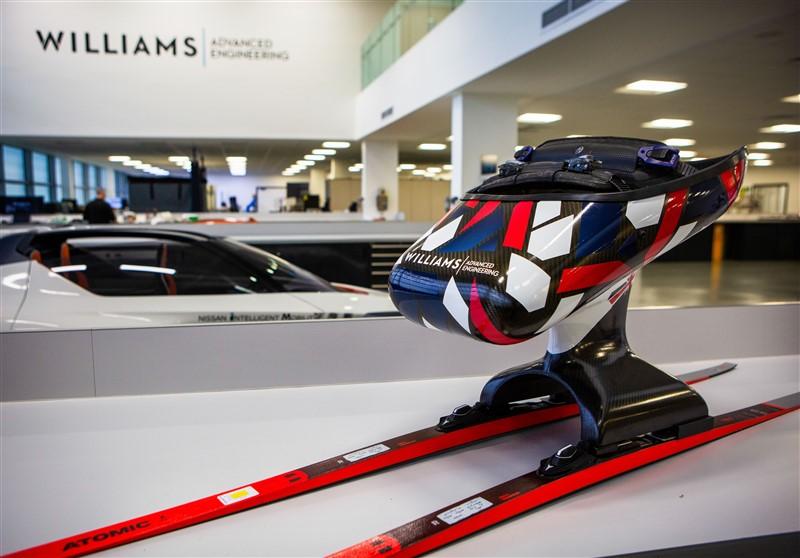With just over 2 months to go until the Opening Ceremony of the Paralympic Winter Games 2022 in Beijing, GB Snowsport and Williams Advanced Engineering (WAE) unveiled new sit-ski technology that will support the nation’s Para Nordic athletes in their quest for Paralympic success at the Games and across the 2021/22 winter season.
The new rigs, which have been tested extensively by the country’s leading Para Nordic athletes since the summer, are the result of an advanced engineering innovation process led by WAE’s in-house Design Team, GB Snowsport’s Sport Sciences department and a multi-disciplinary research team from Coventry University. Athlete involvement in the design process means each sit-ski is tailored specifically to the individual athlete’s technique, drawing on WAE’s impressive track record of supporting British Paralympic efforts since the Summer Games in 2016.
The new sit skis will be used by the four-man Para Nordic World Cup squad, Steve Arnold, Callum Deboys, Scott Meenagh, and Steve Thomas, throughout the 2021/22 season, beginning in Canmore on 3 December, with the design and materials benefiting from the further input of experts from Coventry University, BAE Systems and Formaplex.
Vicky Gosling, GB Snowsport Chief Executive, said: “With just 100 days to go until the Paralympic Winter Games get underway in Beijing, I’m delighted that we can reveal the results of this exciting partnership between GB Snowsport and Williams Advanced Engineering”.
“By working with Williams Advanced Engineering, we are ensuring our Para Nordic athletes will benefit from access to some of the country’s leading engineering innovation experts, providing the team with the very best chance of success throughout the season and into the Paralympic Winter Games.”
Paul McNamara, Technical Director at Williams Advanced Engineering, added: “We are delighted to be involved in this project and using our experience in design and manufacture, to support some of the country’s leading athletes in their preparations for the forthcoming Paralympic Winter Games. During the course of the programme we have seen some significant progress, and we look forward to translating this into positive gains in Beijing.”
Richard Swain, Engineering Team Leader in BAE Systems Maritime Services’ business, said: “Working with our partners and apprentices on this project in support of our country’s athletes has been hugely rewarding for everyone involved. Our apprentices, who manufacture small boats in their day job have used their engineering skills to manufacture the seats for each sit-ski, working with new materials and specialist tooling from Formaplex. We wish our athletes every success for the Paralympic Winter Olympics.”
Dr Samuel Oxford, Associate Professor / Project Lead Coventry University added “As a university we were delighted that a team of experts from across our research centres (Centre for Sports Exercise and Life Sciences and the National Transport Design Centre) were able to work together to help support Williams Advanced Engineering and the GB Snowsport athletes in the preparations for the forthcoming Paralympic Winter Games.”
Matt Sellens, Composites Director Formaplex, said “We are so proud to have been involved in this project supporting the fantastic athletes competing in the Paralympic Games. It’s been a privilege to combine forces with two of the UK’s best engineering companies and to see the sit skis realised.”






